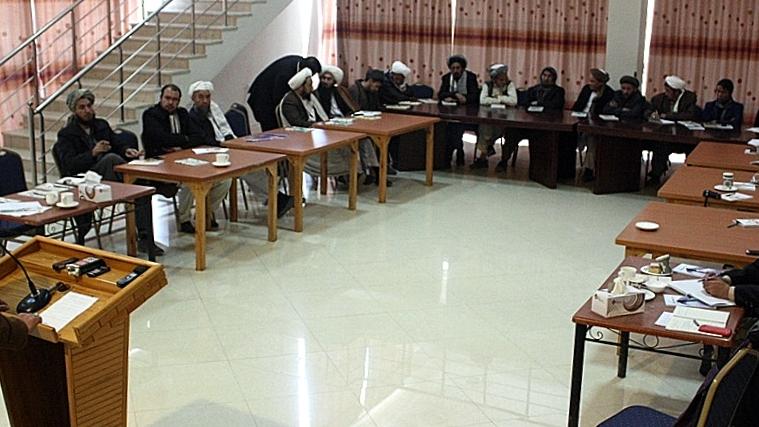BAMYAN - At a UN-backed event in the central province of Bamyan, community leaders met to discuss ways to play a stronger role in promoting peace and preventing sectarian violence.
Around 40 community leaders and Islamic scholars participated in the event, which was set up by the regional office of UN Assistance Mission in Afghanistan (UNAMA) to create a forum where Afghans could discuss the most effective ways to build a culture of peace and to prevent sectarian extremism.
“Islamic scholars have a responsibility to play a stronger role in promoting a culture of peace, harmony and co-existence, which is the most pressing need for Afghanistan today,” said Sadiq Aliyar, the head of the provincial peace committee in Bamyan.
Hassan Asadi, a member of the provincial council and a religious scholar in Bamyan, said Islamic teachings emphasize the importance of human life. “Sectarian extremism is a new and dangerous phenomenon in Afghanistan, and we cannot afford to let it ruin our country,” he said, noting that Afghanistan has recently witnessed a rise in attacks on places of worship, targeting specific groups, and leaving a large number of civilians killed and injured.
“My impression is that Afghanistan is a colourful land of ethnic and religious groups that have managed to live together for centuries, mostly peacefully, and are all proud to be Muslims and proud to be citizens of Afghanistan,” said Aileen Villareal, head of UNAMA’s Bamyan field office, calling on Bamyan’s leaders to help cultivate peace across the province.
UNAMA is mandated to support the Afghan Government and the people of Afghanistan as a political mission that provides 'good offices' among other key services. 'Good offices' are diplomatic steps UN takes publicly and in private, drawing on its independence, impartiality and integrity, to prevent international disputes from arising, escalating or spreading.
UNAMA also promotes coherent development support by the international community; assists the process of peace and reconciliation; monitors and promotes human rights and the protection of civilians in armed conflict; promotes good governance; and encourages regional cooperation.






